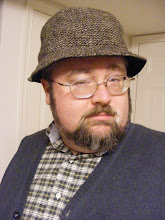For decades, the 39 Articles of Religion, the basic statement of Anglican doctrine (you can never convince me Anglicans are NOT confessional!), has been relegated to a little noticed section called Historical Documents in the back of the Book of Common Prayer.
Article 35 (XXXV) states, "The Second Book of Homilies, the several titles whereof we have joined under this Article, doth contain a godly and wholesome Doctrine, and necessary for these times, as doth the former Book of Homilies, which were set forth in the time of Edward the Sixth; and therefore we judge them to be read in Churches by the Ministers, diligently and distinctly, that they may be understanded of the people. Of the Names of the Homilies." It then proceeds to list them, 21 in all.
Then an odd caveat in brackets is inserted. It states as follows, "[This Article is received in this Church, so far as it declares the Book of Homilies to be an explication of Christian doctrine, and instructive in piety and morals. But all references to the constitution and laws of England are considered as inapplicable to the circumstances of this Church; which also suspends the order for the reading of said Homilies in churches, until a revision of them may be conveniently made, for the clearing of them, as well from obsolete words and phrases, as from the local references.]"
This got my antennae up in true DaVinci Code style to hunt down the "secret theology" of Anglicanism. Here must be what only the inner sanctum of Anglicans knows and believes. It has to be, seeing all the trouble the Episcopal Church has gone to to dissuade people from discovering it. Behold, the Homilies!
12/20/2006
Subscribe to:
Post Comments (Atom)


1 comment:
You have really done some detective work! Your new format is much easier on the old eyes.
In John Wesley's day, he used a lot of lay preachers. However, only ordained Anglican priests were allowed to read the homilies in worship. Hence the custom of extemporaneous preaching without notes which soon came to be regarded as the right and proper way to preach in the early Methodist movement.
Post a Comment